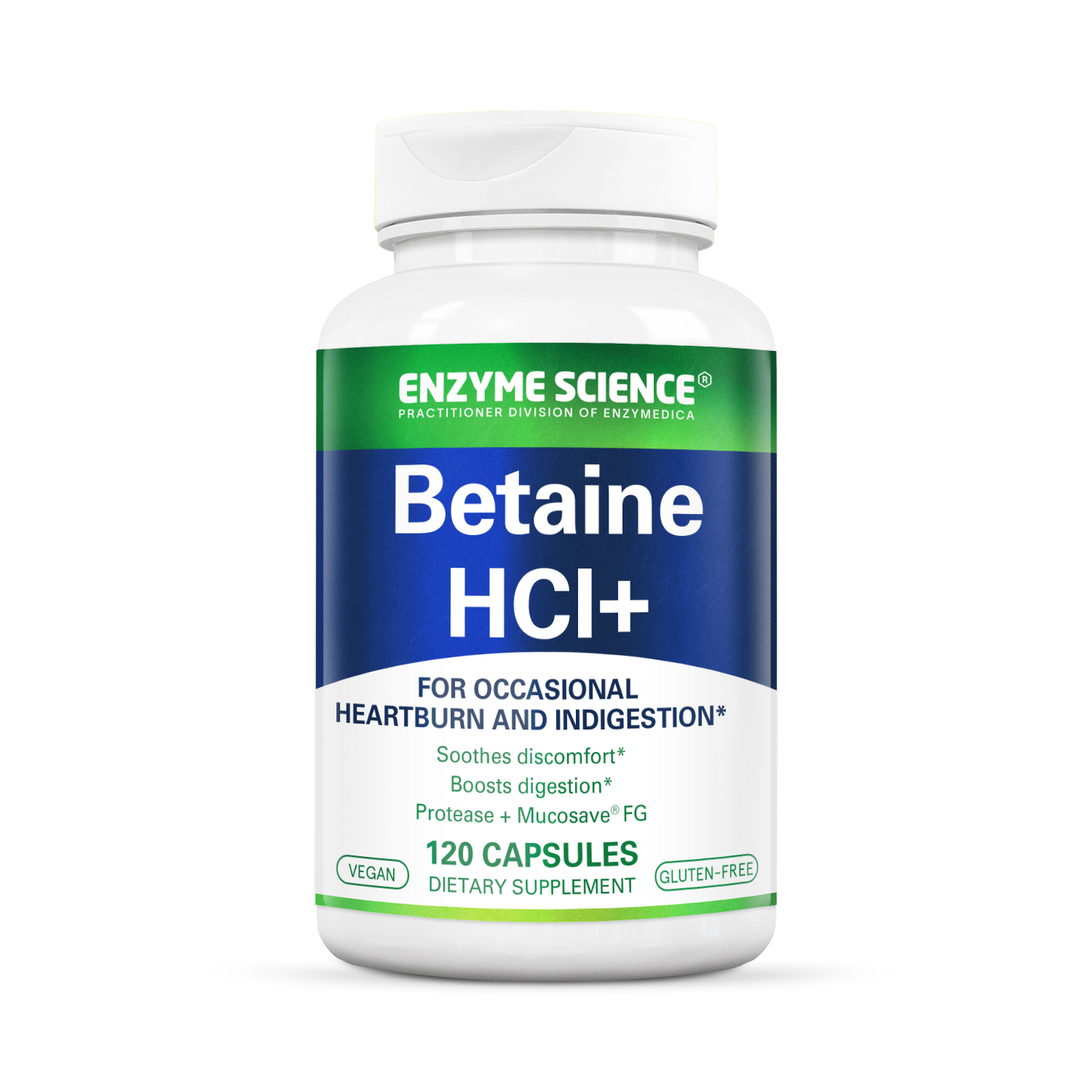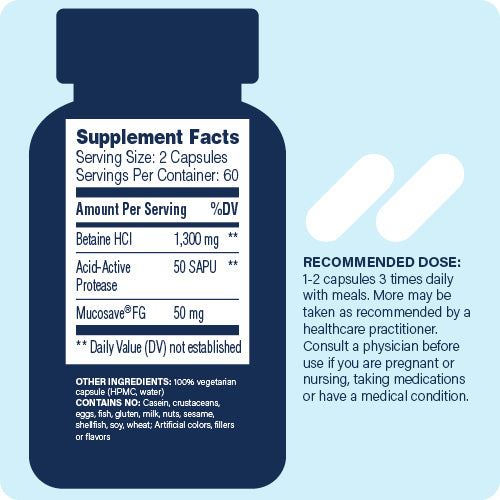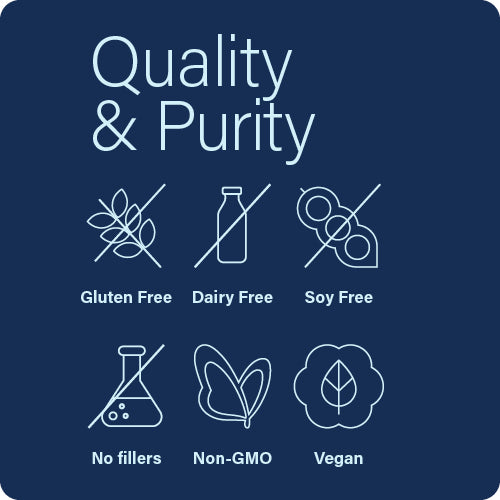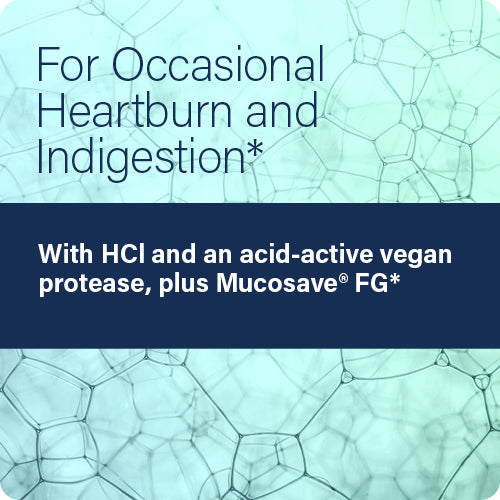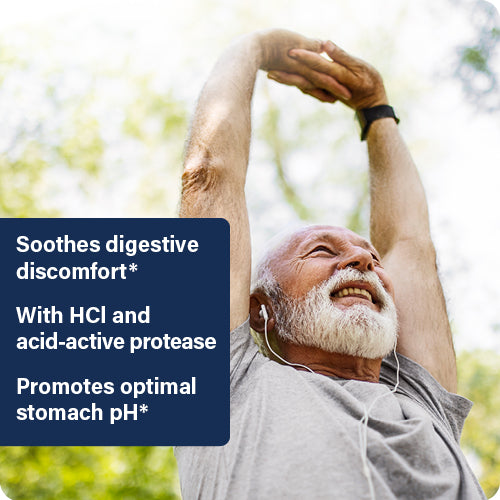Enzyme Science
Betaine HCL+
Betaine HCL+
Couldn't load pickup availability
 Vegan
Vegan
 Dairy Free
Dairy Free
 Gluten Free
Gluten Free
 Non-GMO
Non-GMO
The Benefits
With HCl and an acid-active vegan protease, plus Mucosave® FG^ Betaine HCl+ offers fast-acting relief for occasional heartburn and indigestion due to low stomach acid.^ Gentle formula includes an acid-active vegan protease (active at a low pH), plus Mucosave® FG, a clinically studied blend of prickly pear and olive leaf extracts shown to protect and soothe the stomach lining.^
The Science
While some believe digestion starts with the first bite of food, between 30% and 50% of acid production can be attributed to sensory stimuli alone. This first step of digestion, also known as the cephalic stage, includes visualization, smell and eventually tasting. Studies show just the sight of food or smell (or a combination of both) increases gastric acid secretion. The cephalic phase is mediated through the vagus nerve and its effect on parasympathetic neurons in the stomach, therefore stimulating acid secretion. Once food is consumed, it is broken down through the activation of critical enzymes (amylase, lipase and kallikrein, a group of protease enzymes). Through swallowing and automatic muscle contraction, food particles travel down through the esophagus and reach the lower esophageal sphincter. When relaxed, food passes into the stomach; when closed, this sphincter prevents food from moving out of the stomach back into the esophagus. Indigestion can affect most people at some point in their lives. Over 20% of the population experiences indigestion or heartburn at least once a week. Traditional therapies can provide relief but can lead to insufficient levels of hydrochloric acid and critical enzymes. Long term, this can impact microbial balance, protein digestion and absorption of certain vitamins and minerals.
Recommended Dose
1-2 capsules 3 times daily with meals. More may be taken as recommended by a healthcare practitioner. Consult a physician before use if you are pregnant or nursing, taking medications or have a medical condition.
View full details